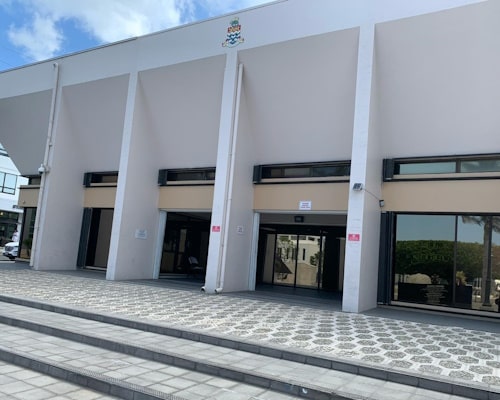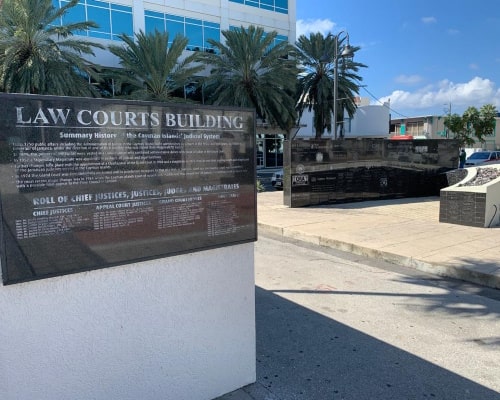New law aims to protect public purse from abuse
(CNS): After many years of inadequate management of the public procurement process that has led to both waste and abuse of taxpayers’ cash, government will finally be bringing the long-awaited Procurement Bill to the Legislative Assembly at the next sitting. The proposed law is now open for public comment ahead of the debate in the Legislative Assembly, which is expected to meet again at the end of this month. The law, which was described by government officials last year as a “monumental change” for the way government acquires goods and services, will apply to every aspect of public procurement.
The comprehensive piece of legislation includes a code of conduct, directions on managing conflicts and ensuring the integrity of suppliers, and rules to stop civil servants from breaking up contracts to avoid the law. It is designed to save government cash and ensure value for public money, and to prevent potential corruption and mismanagement.
The draft law applies to all employees of core government, statutory authorities and government companies, as well as those who sell services to government entities.
The planned legislation covers everything that government buys, from the purchase of school supplies to the development of major projects, such as the airport or the proposed cruise port, which will be both now be subject to the legislation if it passes through parliament next month.
Any decision by a government agency to buy goods or services falls under the provisions of the law. The new Central Procurement Office, headed by the procurement director, was created under the law and will be responsible for providing training, advice and guidance to all entities and people involved in public procurement.
A new Public Procurement Committee (PPC) will replace the current Central Tenders Committee, but each government entity will create its own three-person department level committee, which is where the process to buy anything will begin.
The PPC and the procurement office will be much more involved in purchasing goods for all government departments. The committee will be made up of eight people and a non-voting secretary, and will meet once a month or more, depending on the work load.
One of the eight PPC members must be a lawyer. The chairman and three other members will be appointed from the private sector based on nominations from the premier and another member will be recommended by the opposition leader. Three more members will be appointed by the governor from the civil service.
Before anyone is formally appointed to the committee they will need to show that they have the relevant skills, knowledge and integrity “to carry out the required duties in a highly competent and politically neutral manner” and that they have no financial or other interest likely to negatively affect the committee’s work.
The law is expected to remove the risk and make public procurement far more uniformly accountable and transparent, allowing the public to see why, where and how their tax or fee dollars are being spent.
Category: Government oversight, Laws, Politics




































It’s a shame that legislators have to resort to specific legislation, in addition to the long-standing PMFL, in order to govern over-spending and wastage in the Public Service but if that’s what it takes….. so be it. It should be an inherent culture in public service that one, being responsible for public funds, should manage them with respect and prudence. But that doesn’t exist generally in the Public Service.
I spent almost forty years in the Service, over twenty in management and over fifteen in senior management where I managed departmental budgets. It came naturally to be to get comparative estimates when seeking goods or services, and I demonstrated efficiency and oversight while managing projects. I ensured and delivered many innovations in my organization, including staff development and technological advancements which, in some cases, exceeded international standards in the specific industry. Point being, I did not let prudent spending curtail technological or personnel progress and thus, the advancement of my organization.
I was not popular with those under my responsibility when I queried their spending projections or practices but I prevailed regardless. But guess what, I didn’t fit in! I was seen as being “cheap” when I would not authorize “training courses” in exotic locations on the other side of the world for persons who did not qualify for such training. I queried the purchase of $900 desk chairs (for example), or two persons on the same business trip and staying at the same hotel renting separate cars, etc. etc.
Unfortunately for my organization but fortunate for me – I didn’t stay to many years at the top. Good ethics and professionalism did not fit in and I bailed, happy as a lark!!
Happily Retired!!
What should come next is to take away from the politicians the opportunity to put their nose in the pigs trough. All investors and developers should have to sit and get approval at the table with a board made up of citizens.
Still time to put my hand into the pot O’ gold one more time.
10;54 i dont know if this will hinder the corruption carrying on in procurement especial if they are using the same members from the CTC its like putting the fox to guard the hen house
Schedule 6
(Section 9)
Roles and Functions
Role of the Cabinet
“The role of the Cabinet is to formulate and implement procurement policy that promotes the government’s economic and social objectives, encourages trade and investment in the economy and expands employment opportunities in the Cayman Islands.” – The Procurement Bill, 2016
Forget what the rest of it says…
I thought that the Central Tendering Committee was set up to handle matters like this?
http://www.centraltenders.gov.ky/portal/page/portal/ctchome/aboutus
Why is it that when the Gov creates one department or committee that appears to fail at its purpose, instead of using the structure that was already put in place and making the required revisions, they insist to set up shop somewhere under a different name? Prime example – NWDA and that other thing they created… what’s it called again?
This practice requires more budgeting, funding and the financing of multiple departments/committees/divisions that are essentially designed to accomplish the same goal. SMH
PART 5 – PROCUREMENT METHODS AND LIMITS
“13. The Cabinet shall, by way of regulations, prescribe the respective thresholds, approval processes and the methods of procurement to be utilized in the Islands.” – The Procurement Bill, 2016
So, a law is now to be enacted to give Cabinet the legal power to determine, how, when, where and who… long and short.
4;45 can you say what it means by; the cabinet shall by way of regulations, prescribe the threshold, approval process and method of procurement to be utilize in the Islands? my thinking, will they have input still in who gets what?
This should have been a no brainer. If you work for anyone, the rule is.. you don’t steal from them but it’s good to see goverment employees are being given a reminder. The question is: why was it needed?
Under the Central Tender Committee CTC contractors are chosen for projects, most times tenders come in at 30% lower than the average. Certain contractor submits his tenders at a low price as to get their foot in the door.
Even though the law states they are not bound to accept any tenderer whether he is the lowest bidder or not…this is always the case, they always choose the lowest tender no matter how ridiculously low the tender is.
The other side of the coin, the project manager and project facilitators for government projects are in collusion with the contractors.
The contractor and the project manger who is responsible for overseeing the project who signs off on payment certificates will work along with the contractor to assure he gets paid.
They then start to add extras, change orders and variations to the projects, which is then boosted to the market cost for building.
At the end of the day most of these projects end up costing more than the highest price tendered initially, there is no due diligence on the part of CTC which is unfair to the other contractors tendering.
I would like to see people on the PPC board trained and be familiar with the cost to build in the Cayman Islands and can detect a phony tender. its not all about the cheapest…at the end of the day.. Government always pays more.
this is laughable EACH DEPARTMENT RECEIVE A ANNUAL BUDGET AND I’M TELLING YOU THE MANAGERS MAKE SURE EVERY LAST PENNY IS SPENT EACH YEAR.
That’s standard procedure. If we don’t spend all of it, we would get a reduction next year. WE DON’T WANT THAT!!!
exactly my point. When you get your paycheck each month do you insist on spending the entire amount or do you try to save money where you can.
CNS, why is the comments closed on the Cayman Airways subsidy???????
CNS: Comments are open with the full article on CNS Business.
A little too late methinks.
Meanwhile, CAL’s US$21M subsidy keeps airline flying as Ex-CAL directors get free ride for life…
Abusers drafting laws to stop their own abuse? Yeah, right!
Can’t make this stuff up folks.
Bullshit.
Its the ones who make the laws abuse the public purse the most so far as I can see.
The only reason these layers of bureaucracy are necessary is because the people in charge have repeatedly demonstrated they are not trustworthy. Maybe we should dismiss some of the career kleptocrats?
Now who is drafting this law? The people who have most to lose of course, so unless subject to an independent legal review or even dare I say it review by the Motherland, it is likely, as with many laws here, to have great big holes in it designed purposefully for interested parties to slip through. And what teeth will it have? Enforcement? Answers on a postcard please…
Pigs will fly before the public purse get’s any protection from our eternally honorable government officials. They wouldn’t run for office if they didn’t get perks and kickbacks. FACT.
When I listen to a live debate from the LA on Radio Cayman, all I hear is “Oink, Oink”
I am so pleased to see this Bill. We have asked our Government to implement recommendations from the Auditor General and it’s happening.
I will not complain about this. This is what we asked for and now we got it.
What you ask for and what you get can be two completely different things.
Cynical and inaccurate, bro. FACT.
Writing fact in capital letters does not make it so.
I hope your comment, 7:29, applies to 08/09/16 @ 1:12pm also.